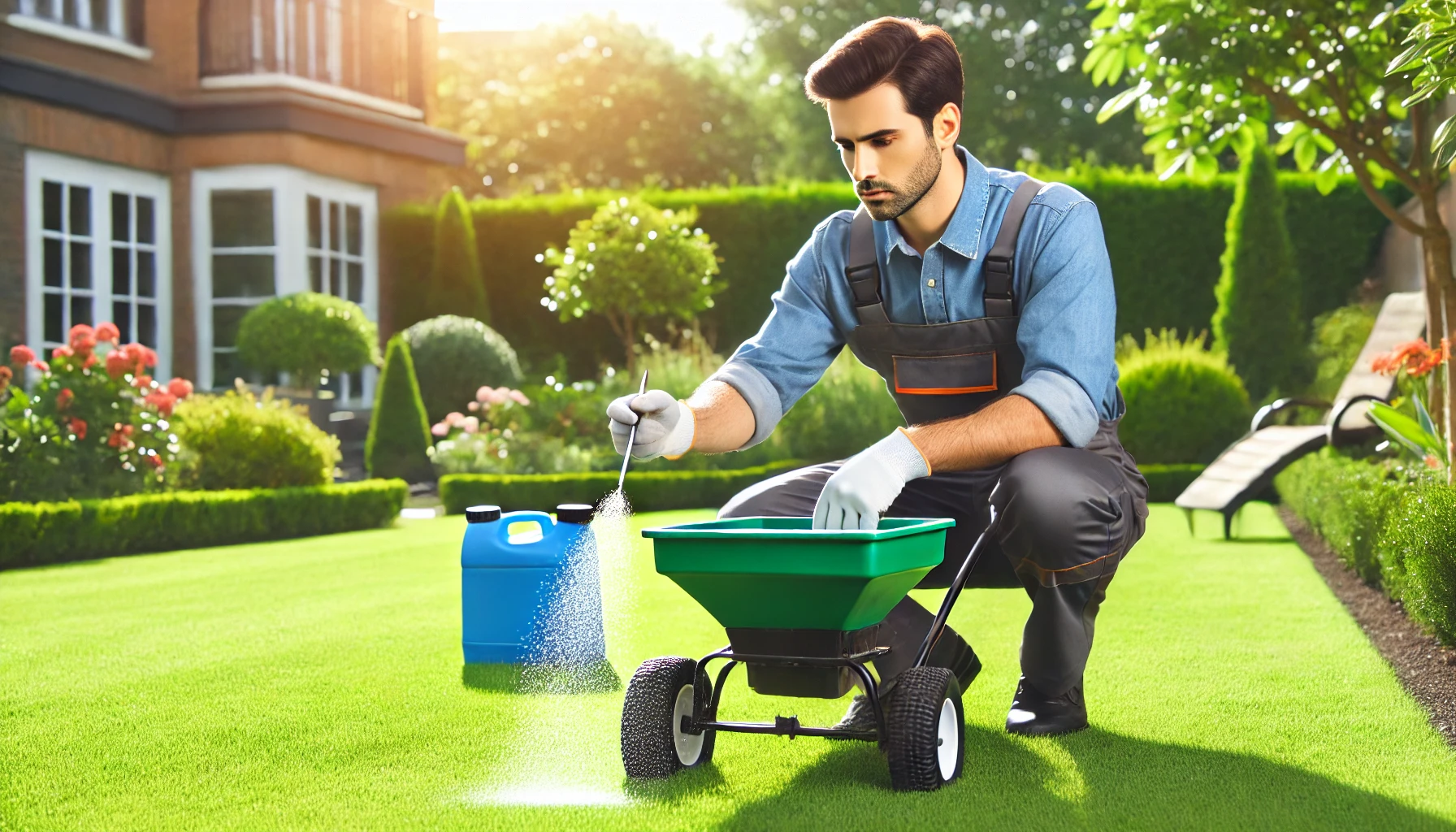
Maintaining a lush, green lawn in Massachusetts requires proper fertilization timing and techniques. Whether you’re a homeowner or seeking lawn fertilizer service, understanding the best schedule for feeding your lawn is essential. At neonpestandlawn, we specialize in premium lawn care services that ensure your grass remains healthy all year round.
Best Time to Fertilize Lawn in Massachusetts
1. Early Spring (March – April)
The first application of fertilizer should be done as soon as the ground begins to thaw and grass starts growing. Applying a slow-release nitrogen fertilizer will help strengthen root development after winter dormancy.
Spring Fertilization Tips:
- Apply a pre-emergent herbicide with fertilizer to prevent weeds.
- Use a balanced nitrogen-phosphorus-potassium (N-P-K) ratio suitable for cool-season grasses.
- Avoid excessive fertilization to prevent rapid, weak growth.
2. Late Spring (May – June)
A second application is crucial before summer heat arrives. Lawn fertilizer service providers often recommend a controlled-release fertilizer to sustain steady grass growth.
Late Spring Fertilization Benefits:
- Encourages dense and green turf
- Strengthens grass to endure summer heat and foot traffic
- Enhances resistance to pests and lawn diseases
3. Summer (July – August)
Massachusetts summers can be hot and dry, so fertilization should be done lightly to avoid stressing the grass. Instead, use organic fertilizers or liquid feeds that do not burn the lawn.
Tips for Summer Fertilization:
- Use slow-release fertilizers to prevent overgrowth
- Water deeply early in the morning
- Apply iron supplements to maintain a rich green color without excessive nitrogen
4. Early Fall (September – October)
This is the most important time to fertilize your lawn in Massachusetts. Fall feeding helps grass recover from summer stress and prepares it for winter dormancy.
Why Fall Fertilization is Crucial:
- Promotes stronger roots for winter survival
- Helps store nutrients for spring growth
- Reduces winter lawn diseases
5. Late Fall (November – December)
A final application of winterizing fertilizer is essential before the ground freezes. This ensures your grass gets the nutrients it needs to survive the harsh winter months.
Winter Fertilization Advantages:
- Maintains root activity even in dormancy
- Reduces spring lawn thinning
- Improves cold tolerance
How to Choose the Right Lawn Fertilizer in Massachusetts
Understanding fertilizer labels and choosing the right product for your grass type is crucial.
Understanding N-P-K Ratios
Fertilizers are labeled with three numbers, representing the percentage of Nitrogen (N), Phosphorus (P), and Potassium (K). For Massachusetts lawns, a recommended ratio is:
| Season | Recommended N-P-K Ratio |
|---|---|
| Spring | 20-5-10 |
| Summer | 15-0-10 |
| Fall | 25-5-15 |
| Winter | 10-10-20 |
Organic vs. Synthetic Fertilizers
Choosing between organic and synthetic fertilizers depends on your lawn goals:
| Fertilizer Type | Pros | Cons |
| Organic Fertilizer | Improves soil health, Environmentally friendly | Slower results, More expensive |
| Synthetic Fertilizer | Immediate results, Cost-effective | Can cause chemical buildup, Risk of over-application |
Common Lawn Fertilization Mistakes to Avoid
1. Over-Fertilization
Applying too much fertilizer can lead to burnt grass and excessive thatch buildup. Always follow recommended application rates.
2. Fertilizing at the Wrong Time
Using fertilizer in the peak of summer heat or during frozen ground conditions can harm your lawn rather than help it.
3. Skipping Soil Testing
A soil test is essential to determine the exact nutrient needs of your lawn. At neonpestandlawn, we provide professional soil testing services to ensure optimal fertilization.
4. Using the Wrong Fertilizer Type
Not all fertilizers are suitable for Massachusetts soil. Choose fertilizers that match your soil type and grass variety.
Additional Lawn Care Tips
Watering Guidelines
- Water early in the morning to reduce evaporation.
- Provide 1-1.5 inches of water per week.
- Avoid overwatering, as it promotes fungus and weak roots.
Mowing Tips
- Keep mower blades sharp to avoid tearing grass.
- Follow the one-third rule (never cut more than 1/3 of grass height).
- Adjust mowing height seasonally – taller in summer, shorter in fall.
Aeration & Overseeding
- Aerate your lawn in early fall to reduce compaction.
- Overseed thin areas with the appropriate grass seed mix.
- Use starter fertilizer after seeding to promote root growth.
At neonpestandlawn, we specialize in professional lawn fertilizer service in Massachusetts. Whether you’re looking for organic fertilization or customized lawn care programs, we provide expert solutions to keep your lawn healthy and green year-round.
